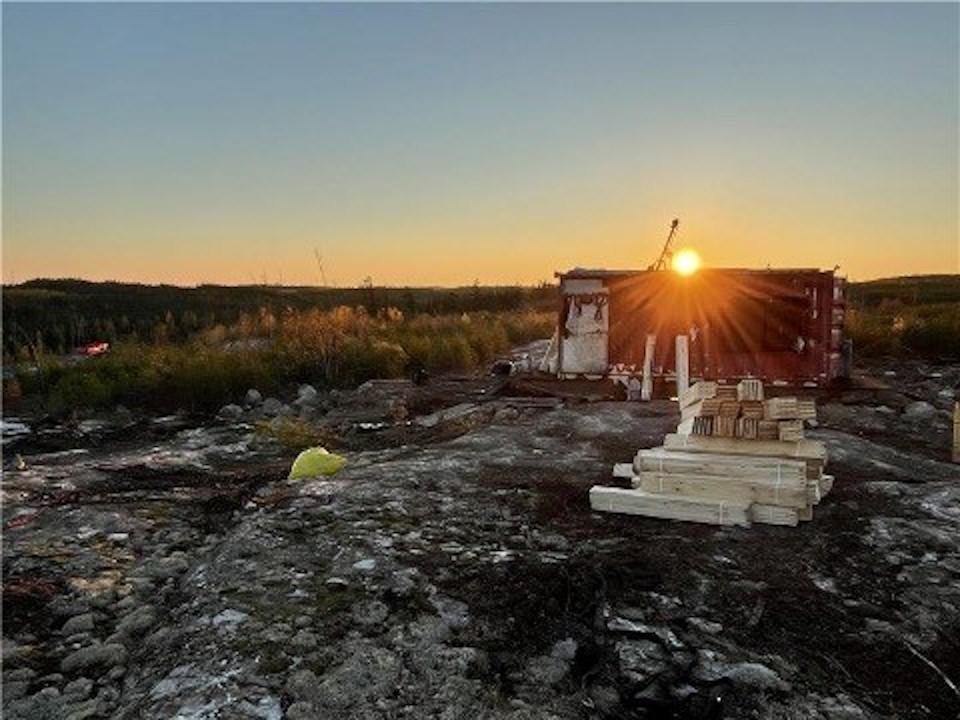Sudbury’s Frontier Lithium has attracted a heavyweight partner in Mitsubishi Corporation to develop its massive PAK lithium project in northwestern Ontario.
On the opening day of the PDAC mining show in Toronto, Frontier Lithium announced a definitive agreement with Mitsubishi to establish a joint venture partnership for both its proposed $US576-million fully integrated mine and a lithium chemicals conversion refinery.
Mitsubishi, a multi-billion-dollar global conglomerate with ties to the battery electric vehicle sector, will acquire an initial 7.5 per cent interest in the project for $25 million, with the option to later boost its ownership stake to 25 per cent. With that investment, Mitsubishi also earns a 25 per cent off-take agreement in lithium production over the operating life of the mine.
Frontier bills the PAK Project as North America's highest-grade lithium resource and is the largest in Ontario. The 26,000-hectare property hosts two spodumene-bearing lithium deposits with the promise of more as exploration drilling continues. The initial mine life is 24 years.
In a March 4 webcall with analysts and investors, Frontier Lithium CEO Trevor Walker said Mitsubishi was the right fit as a project partner because of its connections within the North American battery supply chain, its project management expertise, the access to low cost debt financing, and their global marketing reach.
But the Sudbury company is remaining coy on where the refinery will be located in Northern Ontario and is mum on when vital government funding for an access road and bridge to its remote project site is expected to be announced.
Among the big lithium mine developers in northwestern Ontario, Avalon Advanced Materials and Green Tech Metals are committed to Thunder Bay to build their refineries, while Rock Tech Lithium has just selected Red Rock for its plant.
Frontier will only say the refinery will be located somewhere in northwestern Ontario. Financing for the mine, mill and refinery will be a combination of debt and equity.
The PAK Project is located in a corner of northwestern Ontario near the Manitoba border. There is no permanent overland road to the proposed mine site, only a winter road. An all-season road is needed to allow lithium concentrate to be moved from PAK to a refinery.
The refinery, which would make lithium hydroxide for the electric vehicle battery industry, will be located some distance away from PAK, likely in a host city or municipality with road, rail and port access to be closer to the North American battery cell and car assembly plants.
Ottawa announced funding in 2019 to support the design of a bridge over the Berens River, but has been slow to the table in providing construction money for the bridge and the road, despite the government’s call for more critical minerals projects.
The proposed Berens River bridge and road project is an Indigenous-led initiative and is separate from Frontier’s mine, mill and refinery.
The bridge and the start of the road, located near Pikangikum, about 90 kilometres north of Red Lake, would create a two-lane, 194-metre modern span across the river, would realign and beef up a winter road, and connect more than 8,000 people in communities like Pikangikum, Sandy Lake and the Keewaytinook Okimakanak communities to Provincial Highway 125.
The company needs the bridge and 140 kilometres of all-season road, which still awaits federal funding for construction. The bridge is the key transportation bottleneck for Frontier.
In the webcall, Walker tiptoed around an analyst’s question on whether the Mitsubishi funding will cover the cost of the road.
Mitsubishi’s money, he said, will cover a technical feasibility study for the mine and refinery project, due out in early 2025. That study will inform a final investment decision to proceed with the project by mid-year.
On the bridge and access road, the spotlight is now on Ottawa.
“We fully expect in the future, strong government support around northern infrastructure,” said Walker, that would benefit the PAK project but also Indigenous communities in the area.
“Probably best to leave it at that.”
According to their project timelines, Frontier aims to start spodumene concentrate production at PAK in 2027.
Construction of the refinery starts in mid 2027, with lithium chemical production beginning in 2029.
Walker didn’t provide specifics on the timing of a federal infrastructure announcement, but suggested he didn’t expect any delays to their schedule with assistance being counted on from Ottawa’s Critical Minerals Infrastructure Fund (CMIF).
“It’s in line with our timeline on the project.”
A company spokesperson later said Frontier has secured an unspecified amount of funding from the CMIF and the Northern Ontario Heritage Fund.




